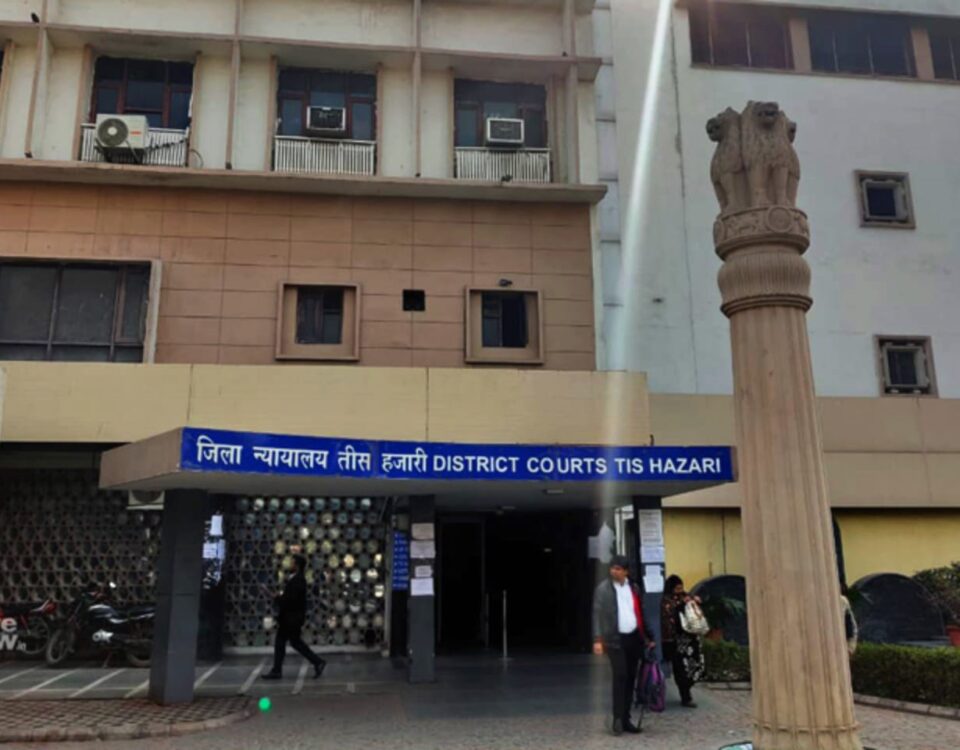
Residence Rights in Consumer Cases
Residence rights refer to the legal entitlement of an individual or entity to occupy, live, or use a property or dwelling. These rights are essential for ensuring safe and secure living arrangements. Whether as an owner, tenant, or family member, residence rights provide a legal framework for protecting the occupant’s ability to live peacefully within a property. In the context of consumer cases, residence rights become highly significant when a dispute arises about the possession, ownership, or misuse of residential properties. These disputes may arise with builders, landlords, or other parties responsible for maintaining or providing accommodation.Consumers may find themselves in various situations that challenge their residence rights, such as defective construction, unfair eviction, non-compliance with housing agreements, or misrepresentation in property transactions. These issues often require legal intervention to protect the rights of the consumer.This page aims to explore the legal protections available for consumers in residential disputes, outline common issues surrounding residence rights, and offer guidance on how consumers can safeguard their residence rights and resolve disputes.
Legal Framework Governing Residence Rights
- Consumer Protection Act, 2019
- Seek compensation for defective housing services or products, such as poorly constructed buildings or unfulfilled amenities.
- Demand rectification of issues such as substandard materials or unsafe living conditions.
- Protection from unfair trade practices like misleading advertising of residential properties, hidden defects, or failure to deliver the promised features of a property.
- The Rent Control Act
- Protection from illegal eviction, ensuring that landlords cannot evict tenants without following due process or giving proper notice.
- Dispute resolution mechanisms, which help resolve conflicts related to rental agreements or maintenance issues between landlords and tenants.
- Demands for repairs and maintenance, giving tenants the right to ask for necessary repairs or maintenance to ensure the property remains livable.
- The Indian Contract Act, 1872
- Compensation for damages caused by the failure of a party to fulfill the terms of the agreement.
- Specific performance, which may include the court ordering the builder or seller to deliver the property as agreed.
- Termination of contract and the right to seek a refund or damages if the terms of the contract are not met.
- The Real Estate (Regulation and Development) Act, 2016 (RERA)
- Seek compensation for delayed possession or failure to meet construction specifications.
- File complaints against builders or developers who fail to deliver properties as per the agreed-upon terms.
- Demand transparency> from developers regarding project timelines, approval statuses, and finances.
The Consumer Protection Act, 2019 is a comprehensive piece of legislation that provides a legal mechanism for resolving disputes between consumers and service providers. The Act aims to protect consumers from unfair trade practices and defective services, including residential property transactions. It addresses disputes that may arise when a builder delivers substandard construction, when there is misrepresentation in the sale or lease of a property, or when housing agreements are violated.
Under the Consumer Protection Act, consumers are entitled to:
The Act gives consumers the right to approach consumer forums for redressal and compensation.
The Rent Control Act governs the relationship between landlords and tenants in India. This Act is designed to ensure that tenants are protected from unlawful eviction and exploitation by landlords. It establishes the conditions under which a landlord may reclaim possession of the property and lays down rent control regulations, ensuring fairness in rental agreements.
Tenants under this Act have the right to:
The Indian Contract Act, 1872 governs the terms of contracts made between individuals or entities. In residential disputes, these contracts may include lease agreements, sale agreements, and construction contracts. If either party violates the terms of the contract, such as a builder failing to deliver a property on time or a landlord neglecting to maintain the rented property, the consumer can seek legal recourse under this Act.
The Act provides the following remedies to consumers in cases of breach of contract:
The Real Estate (Regulation and Development) Act, 2016 (RERA) aims to regulate the real estate sector in India, ensuring that builders and developers comply with certain standards, timelines, and contractual obligations. This Act is essential for homebuyers, as it gives them legal rights to seek redressal for delayed possession, poor construction quality, and other issues related to property transactions.
Under RERA, a buyer has the right to:

Types of Residence Rights Issues in Consumer Cases
- Defective Construction or Building Conditions
- Common issues in defective construction include:
- Cracks in walls and ceilings.
- Water leakage or flooding in certain areas of the property.
- Unstable structures, which may pose a risk to the safety of the residents.
- Failure to provide promised amenities, such as a gym, swimming pool, or parking spaces.
- Unfair Eviction or Denial of Access to Residential Property
- Landlords attempting to evict tenants without proper notice or legal procedures.
- Overcharging rent or demanding illegal fees, beyond the limits specified by law.
- Failure to maintain the property as per the agreed terms in the rental agreement, leaving tenants in unsafe or unsuitable living conditions.
- Misrepresentation in Sale or Lease of Property
- Delay in Possession or Delivery of Residential Property
- Typical issues regarding delay in possession include:
- Delays in construction timelines and handover of property.
- Builders failing to complete promised amenities on time.
- Failure to meet quality standards promised to buyers.
Defective construction is one of the most common issues faced by consumers in the real estate sector. This can include issues such as poor-quality materials, substandard workmanship, or safety concerns like electrical faults, plumbing issues, or cracks in the structure. A consumer who purchases a property is entitled to receive a home that is structurally sound and safe for living. If defects are found in newly built properties, consumers have the right to file a complaint and seek a resolution.
A consumer may file a complaint with consumer forums or under RERA to claim compensation or seek rectification.
Tenants often face the risk of unlawful eviction or denial of access to their rented property without adequate legal grounds. The Rent Control Act protects tenants from being evicted or charged excessive rent. It also ensures that the landlord must provide reasonable living conditions as stipulated in the rental agreement.
Examples of unfair eviction or denial of access include:
Misrepresentation occurs when a seller or lessor provides false or misleading information about the property being sold or rented. This could involve overstating the quality of the property, concealing defects, or making false claims about amenities or the legal status of the property. For example, a builder may advertise a residential property with features that are not actually present, such as a promised swimming pool, gym, or other luxury amenities.
Consumers can file complaints with consumer forums or under RERA for misrepresentation, seeking compensation for any losses caused by such deceitful practices.
Builders often promise a specific date for the completion of residential projects, but when they fail to meet these deadlines, it causes financial and emotional distress to buyers who have made arrangements based on the possession date. Under RERA, builders are legally obligated to complete and deliver the property on time, and failure to do so may result in penalties, compensation, or other remedies for the buyer.

How to Protect Residence Rights in Consumer Disputes
- Document All Transactions and Agreements
- Lease or sale agreements, outlining terms and conditions.
- Payment receipts and invoices, proving your financial transactions.
- Photographs of the property, including any visible defects or maintenance issues.
- Correspondence with the builder, landlord, or developer, including emails or letters regarding maintenance, repairs, or contractual disputes.
- File a Complaint with Consumer Forums
- Approach the consumer forum in your jurisdiction.
- Fill out the complaint form, providing all necessary documentation and details.
- Attend hearings as scheduled and follow up with the forum on the progress of your case.
- Seek Legal Advice
- Report Violations to Regulatory Authorities
To protect your residence rights in case of a dispute, it’s crucial to document everything. This includes keeping copies of:
If you find that your residence rights are violated, you can file a complaint with a consumer forum. These forums provide an affordable and effective mechanism for dispute resolution. You can seek compensation, request repairs, or even demand a refund for defective or delayed services.
The steps involved in filing a consumer complaint are:
In case of complex disputes or violations of residence rights, it’s advisable to consult a lawyer who specializes in property or consumer law. Legal advice can help you understand your rights and navigate through the legal processes to protect your interests.
If your case involves issues like delayed possession, construction defects, or misrepresentation, you may also report violations to authorities like RERA or real estate regulators. These organizations have the authority to investigate complaints and penalize builders or developers who fail to meet their contractual obligations.
Case Studies
- Builder Misrepresentation (Consumer Protection Act, 2019)
- Eviction Without Legal Grounds (Rent Control Act)
A buyer in Delhi filed a complaint under the Consumer Protection Act against a builder who failed to deliver the promised amenities, including a fully functional swimming pool and gym. The Consumer Forum ruled in favor of the buyer, awarding compensation for the delay and deficiencies in the property, including reimbursement for the undelivered amenities.
A tenant in Mumbai was facing illegal eviction from their rented property. The landlord attempted to evict the tenant without following due process under the Rent Control Act. The court ruled in favor of the tenant, declaring the eviction illegal and ordering the landlord to pay damages while allowing the tenant to remain in the property.
Conclusion
Residence rights are vital for ensuring that consumers can access safe, secure, and lawful accommodation. Whether dealing with a purchase of a home, a rental dispute, or issues with defective construction, consumers need to be aware of their rights and the available legal options to protect them. If you face any disputes related to residence, it is crucial to take prompt action, document all agreements, and consider filing a complaint or seeking legal counsel to protect your interests.




